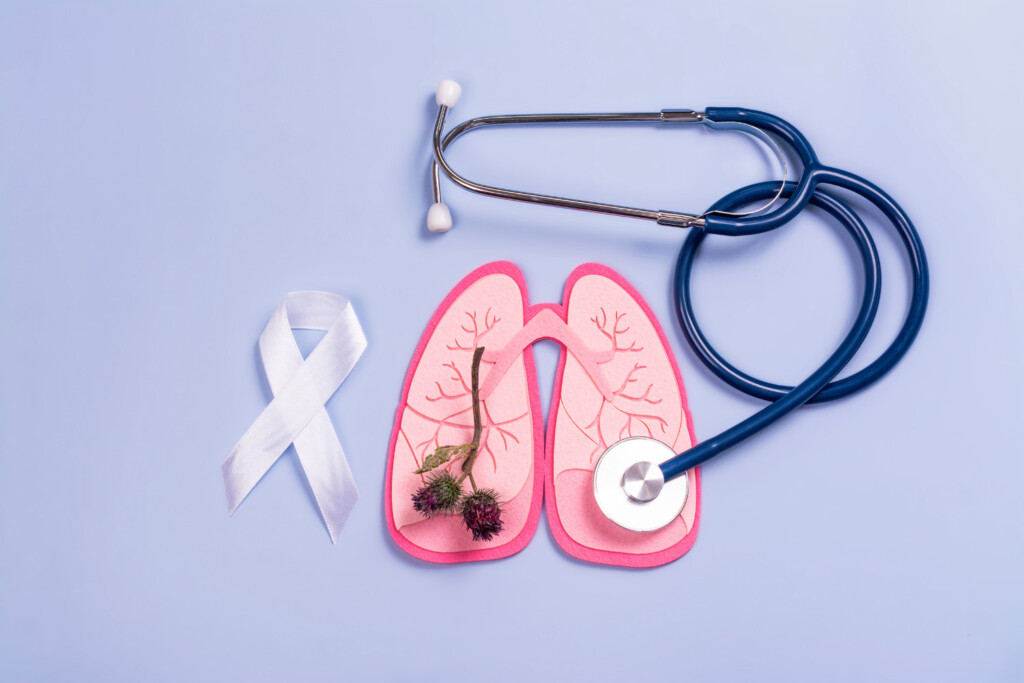November is Lung Cancer Awareness Month: Know the facts

Awareness months are popular these days, and it can be easy to lose sight of their intention and importance. By raising awareness for health conditions, patients can more quickly recognize a potential illness and make more informed decisions for treatment.
In November we strive to heighten lung cancer awareness. Lung cancer is the most common cause of cancer death in the US, actually causing more deaths than the next three most common cancers combined (colorectal, breast and pancreatic). Each year in the US, an average of 218,500 people are diagnosed with lung cancer, and an average of 142,000 die from it.
Lung cancer occurs when abnormal cells cluster together in the lungs. These clusters grow and destroy healthy cells around them.
Common Causes: The mutation of healthy cells happens when they are exposed to dangerous chemicals that are inhaled, such as cigarette smoke or other carcinogens. Today, it’s no surprise that smoking can lead to lung cancer. Unfortunately, non-smokers can also develop lung cancer. Common causes of lung cancer include:
- Smoking
- Secondhand smoke
- Family history
- Exposure to asbestos, nickel, soot, tar, chromium and arsenic—by inhalation
Lower your risk: Nine out of 10 lung cancers are caused by smoking, but in addition to not smoking, there are other ways to lower your risk:
- Stay away from secondhand smoke, which increases your risk of getting lung cancer by 20-30%.
- Get your home tested for radon, an odorless, tasteless gas that can leak through cracks in your foundation. One out of 15 homes has high radon levels, and it’s actually something that can be fixed once detected.
- Quit smoking. Easier said than done. Talk to your physician about programs and resources to help you. You can also visit www.lung.org for helpful resources.
Healthy Lungs
Getting vaccinated for all respiratory infectious diseases is a sure way to keep your lungs healthy. This includes, COVID-19, influenza, pertussis and tuberculosis.
So how do you recognize lung cancer? Most people do not actually have symptoms until the cancer is advanced, and these symptoms can also occur with other illnesses. So, we always advise patients to talk to their physician if they have a combination of any of the following:
- Persistent or worsening cough
- Chest pain
- Shortness of breath
- Wheezing
- Chronic fatigue
- Unexplained weight loss
- Coughing up blood
Island Health offers a low-dose CT lung cancer screening. The low-dose CT (LDCT) lung screening is a test with a low-dose CAT scan which can identify small nodules or other abnormalities in your lungs. It allows for early detection of lung cancer, before there are symptoms, which may make it easier to treat.
Talk with your doctor about getting a low-dose CT lung cancer screening if you are:
- Between the ages of 55-77
- Current or former smoker—with a 20 pack per year or equivalent of smoking history.
How do I get a low-dose lung cancer screening at Island Health?
If you think you meet the criteria above, meet with your primary care provider to discuss a referral for the LDCT scan. They can help answer any further questions and support you in accessing this state-of-the-art screening!
Published on October 9, 2024
